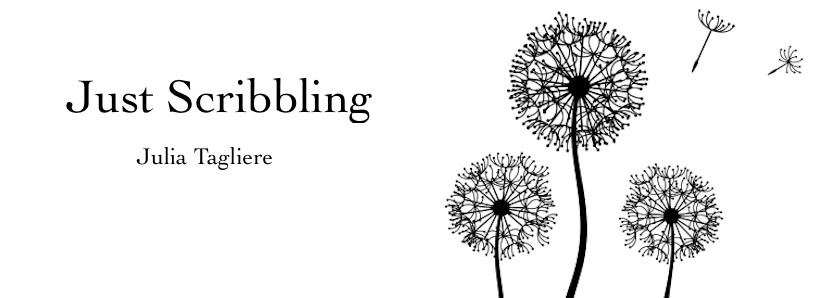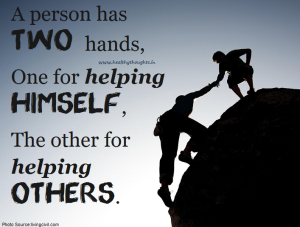 On a beautiful fall day last weekend, a group of writers, editors, publishers, poets, and agents gathered in Washington, D.C. for the third Poets & Writers Live event. I was fortunate enough to be one of them.
On a beautiful fall day last weekend, a group of writers, editors, publishers, poets, and agents gathered in Washington, D.C. for the third Poets & Writers Live event. I was fortunate enough to be one of them.
 The panel discussions were substantive and witty, featuring industry veterans willingly and openly sharing resources, tips, challenges, and advice. Some of it, thanks to numerous other writers’ events I’ve attended, I’d already heard in some form before. But one of the things that really reached out and hooked me was a comment by Melissa Faliveno, associate editor of Poets & Writers Magazine, about the concept of literary citizenship.
The panel discussions were substantive and witty, featuring industry veterans willingly and openly sharing resources, tips, challenges, and advice. Some of it, thanks to numerous other writers’ events I’ve attended, I’d already heard in some form before. But one of the things that really reached out and hooked me was a comment by Melissa Faliveno, associate editor of Poets & Writers Magazine, about the concept of literary citizenship.
This is not a new term. It’s been around for several years, and like most “movements,” it’s had its share of supporters and detractors as the definition has continued to evolve. Not familiar with the term yet? Well, the Renegade Writers’ Collective out of Vermont features a helpful and pithy description of literary citizens on its website. Some of it I agree with (I would never burn books, love nothing more than to sink my teeth into a hefty semicolon debate, and I do, in fact, wear sunglasses, almost on a daily basis). But some of their definition calls to mind the sort of obnoxious and affected writerly types one occasionally encounters: You know, the ones you sort of want to yell at or smack upside the head with your Moleskine: “Stop it! Drinking bourbon and staring pensively at the sidewalk for an hour does not make you a writer!” If writing wedding toasts in iambic pentameter and eating sushi are the requirements for literary citizenship then I guess I’m one big, happy expatriate.
Seriously, though, some folks in the literary world have been getting really worked up about the term of late. Check out writer Becky Tuch’s take on the concept. For her, literary citizenship seems to be less about your identity as an individual writer, à la Vermont, and more about your obligations as a member of the collective society of writers–and she doesn’t seem to view those as necessarily a good thing, either:
I really detest the phrase “Literary Citizenship”…By evoking such positive qualities as citizenship and community-mindedness, the message behind Literary Citizenship seems to be that writers should embrace this new dawn. We should accept it, perhaps even celebrate it. In doing more work (editing manuscripts, reviewing books, interviewing writers, blogging about writing, sharing news about books, etc.) for less pay, we will become good citizens.
Okay, I get it—but to me, Ms. Tuch’s conceptualization of literary citizenship, as stated here, seems to be driven more by the fact that we writers are being told we have to do more and more for less and less in order to achieve even a modicum of success, than about the fact that in the process, we’re forming a community of good citizens. More for less certainly is an undeniable fact of the writerly life as we know it today—and it’s a fact that sucks. But why be such a strong detractor of something that is essentially a good thing?
She explains why she detests the phrase:
It’s just that in all this talk about what makes a good Literary Citizen, it seems we have missed a key step: critical reflection. Isn’t it important to ask why things are the way they are? The notion that the system ought to be challenged, that there is even a system within which all this is operating, is notably absent from discussions about being a good Literary Citizen.
I can’t argue with that, either. Critical reflection and repair of broken or faulty systems are awesome, and as she continues supporting her argument with suggestions about the need for writers’ unions and strikes, one can see that her view of literary citizenship is a very serious one, indeed.
But for me, these interpretations, while perfectly valid and demanding of reflection, simply weren’t capturing the yearning in my heart at the very words “literary citizen.” So—let’s return to Room LJ-119 at the Library of Congress this past weekend. Here is what Ms. F had to say about it, as paraphrased from my notes:
“Literary citizenship [can be defined as] an author’s ability and willingness to promote not only himself and his own work but also to support and promote other writers.”
BOOM.
Simple, succinct, and sweet.
Now that I get. I not only get it, I’ve seen it in action: at the Bloomington Writers Festival in Minnesota year after year; in my writing group there, that still supports me and lets me participate, even though I now live hundreds of miles away; and again, this weekend, at Poets & Writers Live and, especially, during the lunch break with some of my fellow attendees.
We were all at different stages in our literary journeys: Some of us had finished, but not yet published manuscripts; some of us were just starting to write our stories; some of us had books about to be published. But everyone, every single one of us, had something, some advice or tip or insight or question or fear, to bring to the table, and as a group, we collectively addressed them.
We weren’t a union, trying to change a difficult system; we weren’t throwing back bourbons or dissecting metaphors (maybe next time). We were a respectful, open, like-minded and passionate group of people who understood, instinctively and organically, that what we really need, in a profession that entails spending so much time alone and that, at its core, can be fundamentally competitive, is each other.
Maybe my take on it is not institutional enough for some folks; maybe it’s too grassroots.
But to me, this is what literary citizenship is all about: finding ways to take your experience, your network, your connections, and using your knowledge to support others. Are you an aspiring writer? Reach out to others (reach out to me!) who can answer your questions, steer you to helpful resources, lift your spirits when your work is rejected and celebrate with you when your work goes live.
Perhaps you’re at the other end of the spectrum, a grizzled veteran, and feel like you don’t have the time or interest or see sufficient ROI potential to reach out to those just starting out. Remember that you, too, were once an unpublished, struggling author, and how important it was for you to have someone reach out a hand to help you. Giving back feels good.
Or maybe, like me, you’re somewhere in between the two, not quite just starting out, but no blockbuster author (YET, of course), either. I didn’t think I’d have much to contribute that my fellow writers didn’t already know—but I was amazed at how many questions I was able to answer at lunch on Saturday. Doing so not only felt really good (that must be the former teacher in me), but it was also, to be frank, a tremendous confidence booster, as it forced me to reflect on just how far I have come since I began.
We all know more than we think we do.
Ultimately, we all have to define the word citizenship for ourselves: This is mine.
Do you agree?
Then write. Get the words out there, then go forth and support someone else, because we need each other, and it is by helping each other that we all become strong.
For more information on being a good literary citizen, check out
http://literarycitizenship.com/

